I am starting to turn my mind towards writing once again. Not at the daily pace I was at before the break; that will take a few more weeks of oiling the machine, but on a gentler, weekly, schedule. If you have been following my writings over the last few months, you know I have been flogging the slogan:
Society only makes sense in the light of the planet
Over the next few months, I want to add the opposite slogan to my repertoire:
The planet only makes sense in the light of society
Wait what? Isn’t society a human thing, and aren’t humans a tiny fraction of all living things? All true, but there are two meanings of the terms ‘social/society’ that deserve to be ascribed to the planet:
Social means ‘connection’ and the social sciences are the sciences of connection. Latour makes much of this view of the social.
The planet is typically assimilated into ‘nature’ which is opposed to ‘society’ and that opposition persists even when we don’t want it to. For example, the concepts of ‘freedom’ and ‘justice’ and ‘politics,’ are all social concepts about beings that have agency and moral worth.
My goal over the next few months is to continue my exploration of planetary politics by bringing animals and plants and other organisms as beings that have political significance, i.e., bringing the planet into society as much as society into the planet. A planetary Buddhist would say society and planet are ‘empty and interdependent.’
Are the Buddhists right?
That testing of the interdependence hypothesis will take several steps, of which the first is to drink from a trickle of new books highlighting the subjectivity of non-human beings.
Philip Ball and Ed Yong have new books out on animal senses and animal minds.
Ed Yong - An Immense World: How Animal Senses Reveal The Hidden Realms Around Us
The above two books are mostly about the ‘outer world’ of other species. For their inner worlds, we have David M. Peña-Guzmán - When Animals Dream: The Hidden World of Animal Consciousness.
These books are part of a slow shift in our understanding of the relationship between nature and society. Everyone (I know) agrees that the planet can’t be ignored - it’s not a passive backdrop to human affairs anymore, if it was ever so. Many will also agree that other creatures have minds - perhaps even bacteria! - and their mental capacities are worth studying and celebrating.
Where we still fall short is in acknowledging that the planet is full of other beings whose agency and power have to be taken into account, i.e., that our politics is severely limited when restricted to human agencies, aka the planet makes sense only in the light of society. That’s why it’s important to write about animals alongside writing about the globe as I was writing a few weeks ago. The globe and the earth have to merge for a new planetary political order to take root.
Never forget: we live in Solaris too.
PS: DALL-E and Midjourney generated all the images in this article




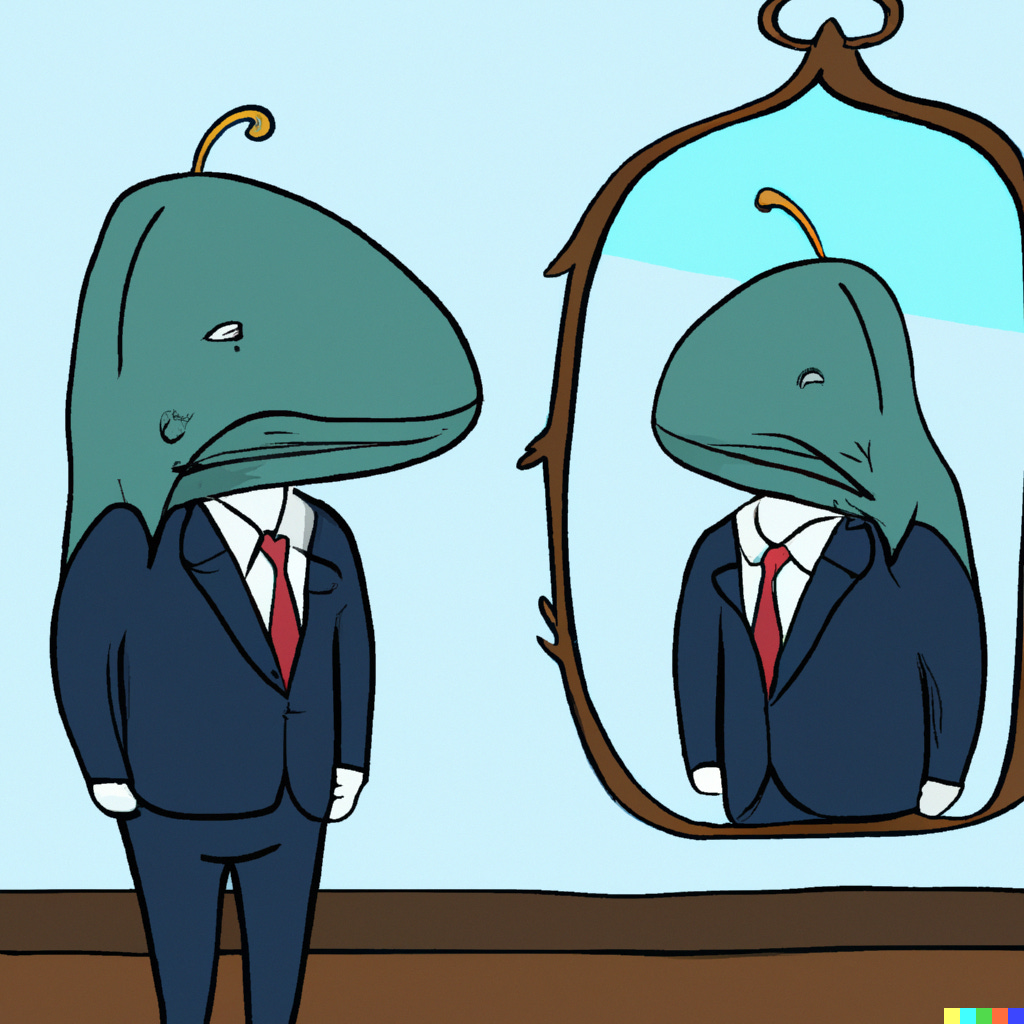
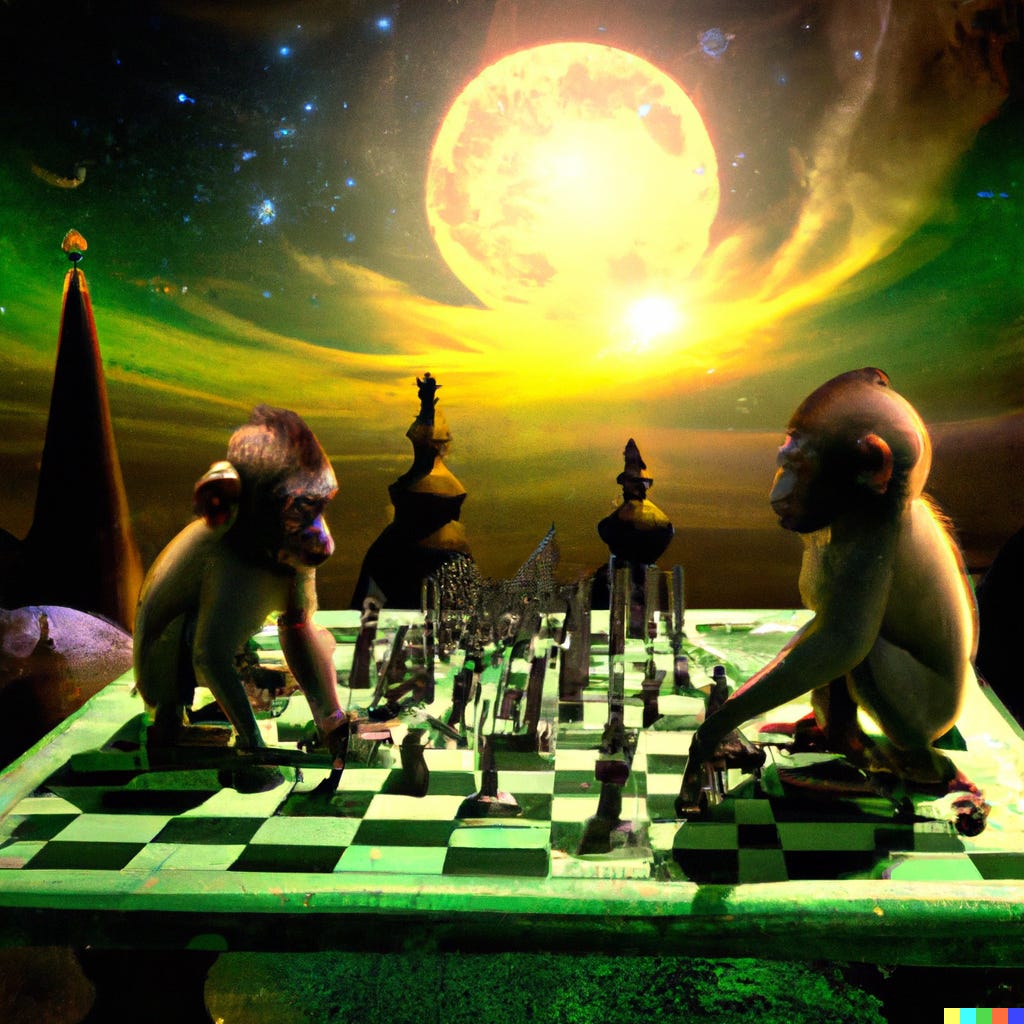

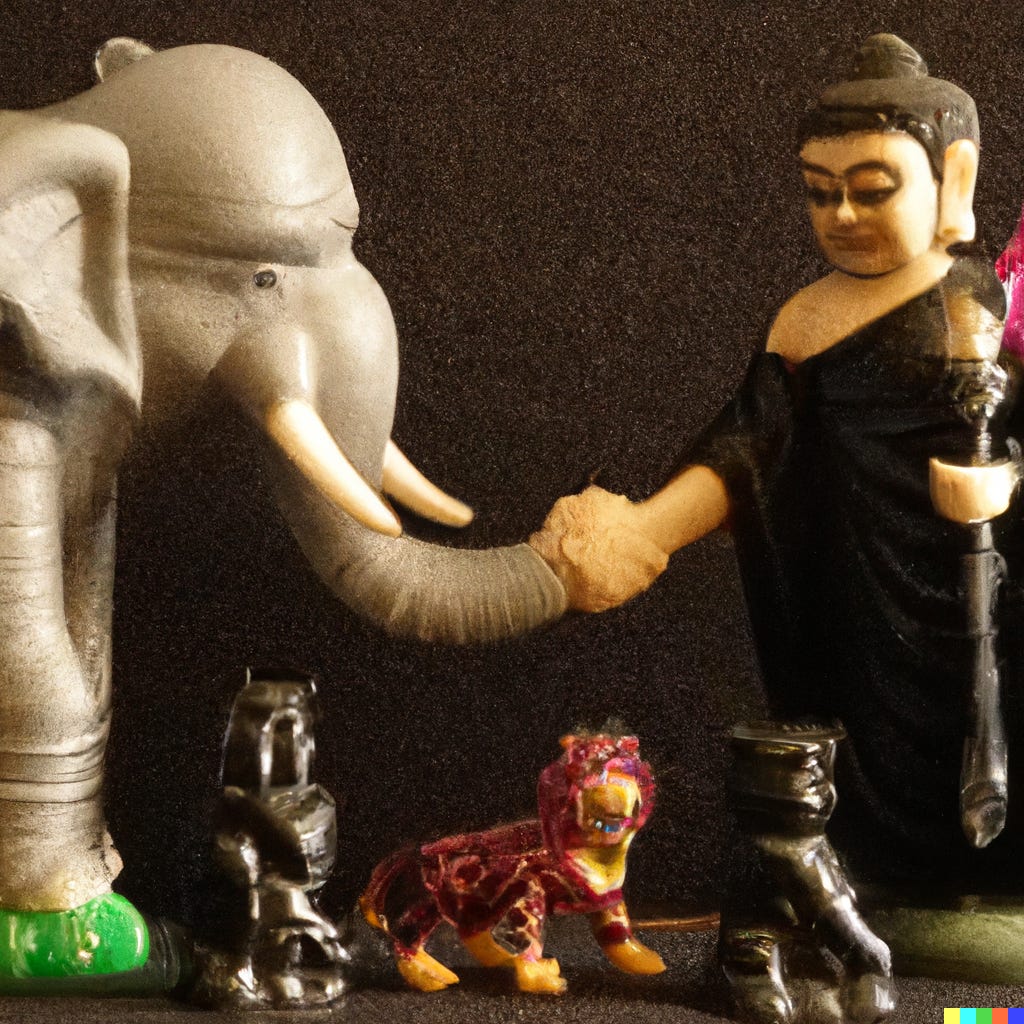
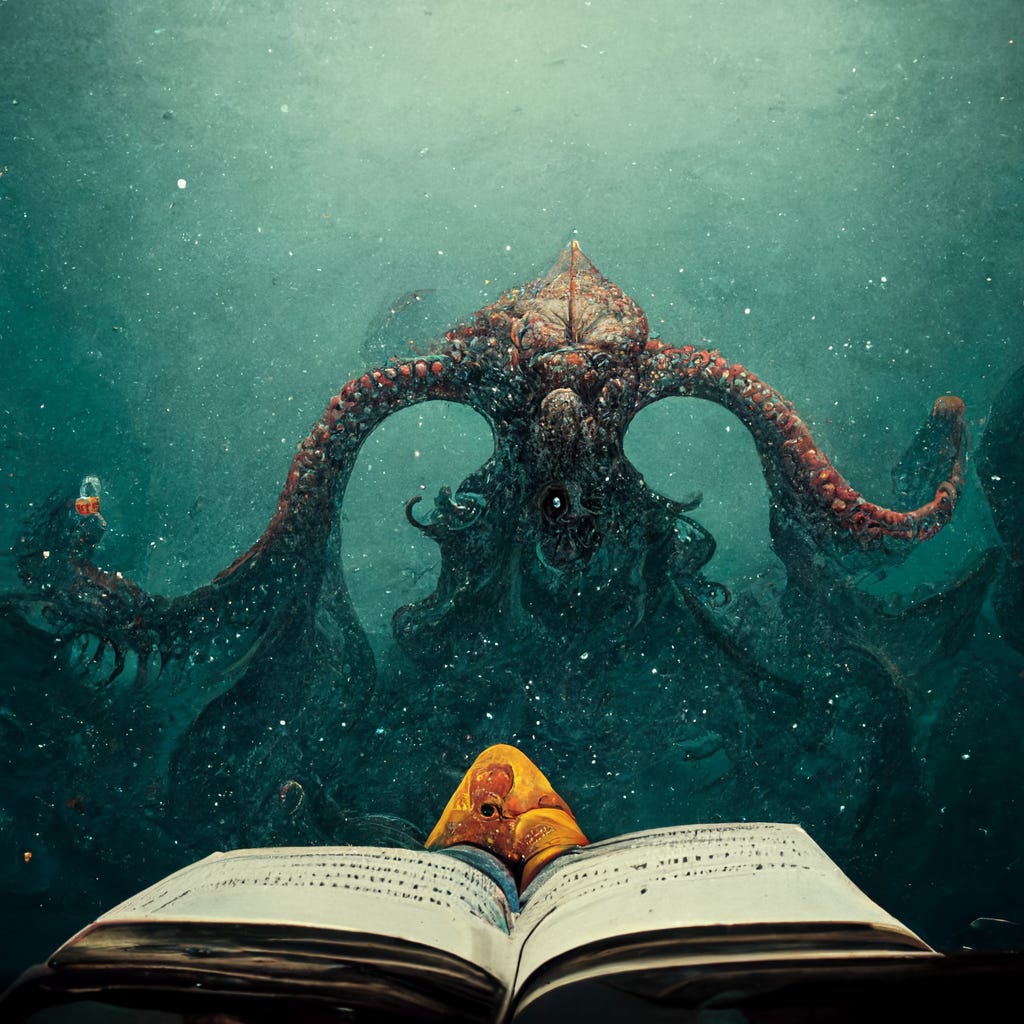
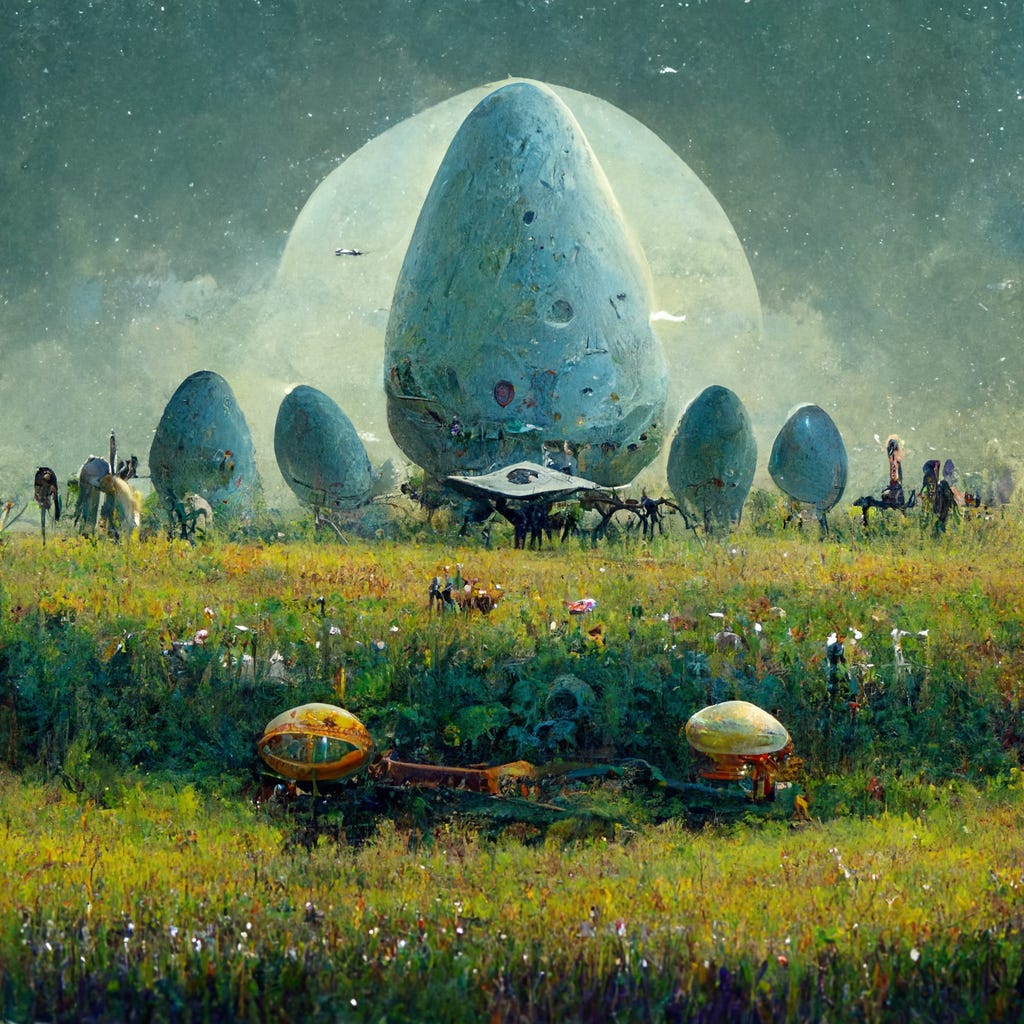
The kind of public resistance we encounter whenever we try to make "society" aware of the "planet" is because human sociality is often constituted of destroying and abusing that which we are calling the "planetary". The battle is therefore not just about information and awareness, it is also about overriding suppressed collective guilt and the "socialized" anger born of it.